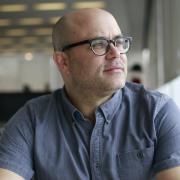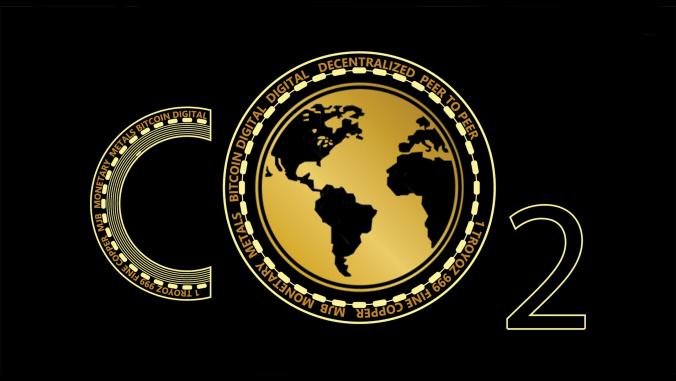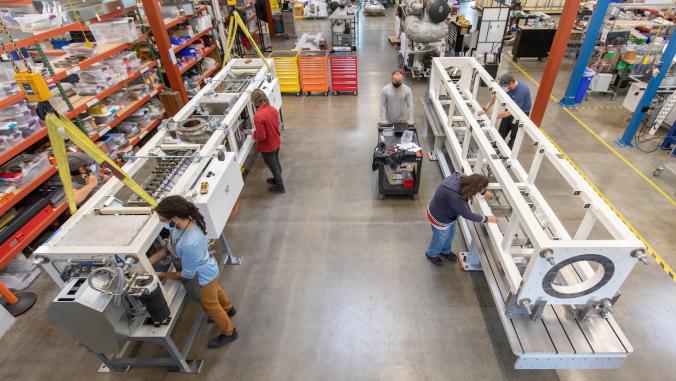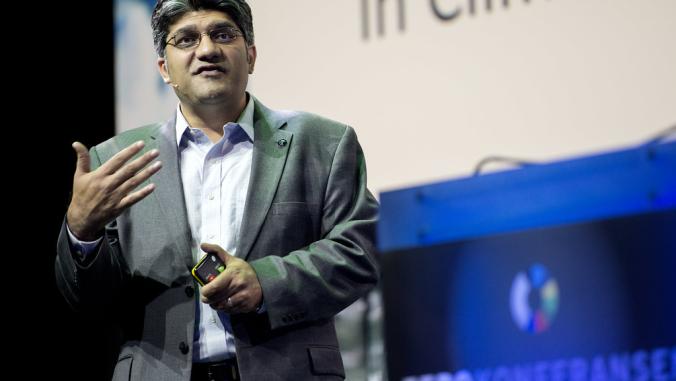Jeff Immelt on Crowdsourcing, 30 Rock, and Why 'Green' Is No Longer Gold
<p>The partnership between the CEO of a $157 billion global industrial goods and financial services juggernaut and a much smaller online crowdsourcing firm highlights how innovation can be put to work at even the world's largest firms.</p>

Last week, at the Tribeca Cinemas in New York City, there was a rare intersection of business suits and hipsters in skinny jeans. The business suit, in this case, was worn by GE's CEO Jeffrey Immelt, sans tie and relaxed. In the skinny jeans, perched on a stool next to Immelt was Scott Heiferman, co-founder and chief executive of Meetup.com. In the audience, appropriately enough, a hundred or so folks drawn from area groups -- called Meetups -- focused on entrepreneurialism, the environment, sustainable business, inventing and others.
The gathering was a joint effort by Meetup.com and GE to highlight the Ecomagination Challenge, a novel effort by GE that aims to "crowd source" new ideas, products and services from the public to create tomorrow's smart grid. The reward for winning ideas? The opportunity and funding to work with GE to turn them into a business. GE has teamed up with a handful of venture capital players to commit $200 million to take winning submissions from idea to reality.
It may not be obvious why Immelt, CEO of a $157 billion global industrial goods and financial services juggernaut was sharing the stage with Heiferman. In his intro Heiferman was self-mocking, pointing out that Meetup's annual revenue is what GE churns out in a few hours. But Heiferman's website is a leader in the online world of social networking. Founded in 2000, the site made wider headlines in 2004 as an emerging tool for Democrats to tap into young voters. These days, Meetup.com boasts over seven million users, who rely on it to help communicate about gatherings and issues on everything from knitting circles to Tea Party rallies.
Immelt was quick to point out that no matter how big GE may be, old school corporate culture is not as agile at identifying and commercializing innovative ideas as a start-up like Meetup can be. Immelt was there to learn: "You don't get to a job like mine without a healthy paranoia about how new things -- like Meetup -- work," he joked. "I need to understand how this works so I can use it sell more stuff in the future."
For GE, Immelt continued, size is both a liability and a virtue. "How can you, over generations, make size an advantage? That's really hard to do because size brings bureaucracy and makes you a big target," he said. With a laugh, he asked: "Does the way Alec Baldwin acts on 30 Rock hurt your feelings?... It can be true!" referring to the NBC comedy's stinging satire about bureaucracy at GE, the network's long-time corporate parent. The upside of size, he went on, is running a company that can take a successful idea and scale it quickly. Consider the wind turbine market, Immelt said: "We bought it for $200 million from Enron [in 2002]. This year it will generate $7 billion in sales. We generate as much cash per month from the business as we paid for it."
The Ecomagination Challenge, Immelt went on, is an experiment in capturing innovation from new sources. The company is reaching beyond its executive corps and outside its R&D center for ideas to feed new products and services into this growing market. "[The challenge offers] $200 million to develop technologies that complement our smart grid offerings," he said. Since the program launched in early July, over 1,800 ideas have been submitted. If the approach delivers results in the area of the smart grid, GE will try it in healthcare, Immelt explained. "GE has to be good at ways to take ideas and make them big, reliably, and quickly."
Novel as the process of crowd sourcing innovation may be for GE, the end goal is the priority: Cultivating new cleantech markets. Launched 2005, GE's now familiar Ecomagination campaign has seen green sales quadruple, accounting for about $20 billion in annual sales today and is among GE's fastest growing business lines. GE is no stranger to capital-intensive industries that measure project lifespans in years or even decades, so Immelt emphasized that Cleantech is surely going to go through some ups and downs in terms of public and market sentiment. "Clean energy will have a long time horizon," he said. "This will be a $150 billion market by 2015 or 2020. And it's global."
Immelt acknowledged that "green" fatigue is a factor, especially since the public and policy makers have been inundated with hype around the promise of technology to fix the environment and energy problems. "Words matter. Brands matter," he said, emphasizing that the label "green" has lost its mojo. "The word 'green' has cheapened the clean energy movement. It makes it too precious for the common man. 'Energy security' would have been a better way to brand this technology."
From early on, Immelt sensed that eco-focused strategy might be suspect, so he pushed hard for GE's Ecomagination program to use clear metrics from the outset. "Our company is one of engineers and finance people. So I was worried this would come across as too soft," he said. To counter this concern, Immelt laid out four hard targets: To double R&D in the area; next, to quadruple revenue for eco-products to $20 billion on green sales; third, to be transparent about our efforts to the public; and lastly, to run GE under the rules of the Kyoto Protocol. "We've done all this and the fact of the matter is that the effort has gotten our employees involved ... and saved us money," he said.
The deadline for entries to the Ecomagination Challenge is Sept. 30, 2010.





